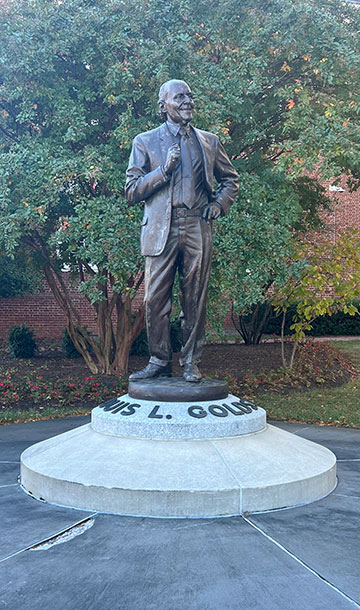About the Treasurer’s Office
The State Treasurer’s Office organization includes an Executive Office and seven Divisions, Administration, Banking Services, Data Processing, Debt Management, Insurance, Investments, and the Legal Office.
Treasurer’s Duties
The Treasurer is the principal custodian of the State’s cash deposits, monies from bond sales, and other securities and collateral and directs the investments of those assets.

The Treasurer’s duties include maintaining an ongoing relationship with the rating agencies, conducting outreach with State Agencies, keeping legislators informed of the operations of the State Treasurer’s Office, and serving on numerous boards and commissions including the Board of Public Works, the State’s highest administrative council.

The Treasurer is elected by a joint ballot of both houses of the General Assembly, a tradition begun following the Constitutional Convention of 1851, at which the Board of Public Works was created, with the Treasurer’s role designed to represent the Legislature. Because of his close relationship with the General Assembly, the Treasurer briefs the members of the Legislature on matters concerning the State Treasury ranging from reporting the results of a bond sale to discussing the latest information on the financial markets. The Treasurer is also responsible for producing this Annual Report to provide the Governor, the General Assembly, and the public with current information about the operations of the State Treasurer’s Office.

Boards and Commissions
In addition to his duties related to the operations of the State Treasury, the Treasurer has many external responsibilities, and serves on approximately 20 different boards and commissions. Chief among these responsibilities is the Treasurer’s role on the Board of Public Works, on which he serves with the Governor and the Comptroller. With its executive authority, the Board supervises a substantial portion of the fiscal affairs of the State, sets policies not otherwise set by the General Assembly, and controls the expenditure of funds approved by the Legislature. The Treasurer manages the sale of General Obligation bonds for the Board of Public Works and helps maintain the State’s triple A bond rating.
The Board generally holds its meetings every two weeks, supplemented by a “pre-Board” meeting which gives those agencies with items on the Board’s agenda ample opportunity to explain their items. The Treasurer attends both meetings in addition to reviewing and researching the Board’s copious agenda prior to these meetings. The Treasurer also visits many of the project sites that appear on the Board’s agenda.
The Board has a diverse scope of responsibilities which include:
Approving the sale of General Obligation bonds; Supervising the expenditure of all sums appropriated through State loans authorized by the General Assembly; Supervising all other capital expenditures except those for roads, bridges, and highways, and approving all contracts for such expenditures; Approving all leases of land, buildings, and office space before such contracts are executed by any State Agency; Approving the sale, lease, or transfer of real property belonging to any State Agency or institution; Adopting or approving certain loans and grants by State Agencies, and approving the terms and renewal of all bonds furnished by State officials; Custodian of the General Emergency Fund; Issuing licenses and permits to dredge or fill State tidal wetlands; Adoption of rules, regulations, and procedures for the administration of the State’s Public School Construction Program, and approval of the allocations paid to the local subdivisions; Supervising the implementation of the State’s procurement policies for both capital projects and operating budget contracts; and Reviewing and approving, when necessary, proposals by the Governor to reduce appropriations.

The Treasurer is Chairman of both the Capital Debt Affordability Committee and the Commission on State Debt.
